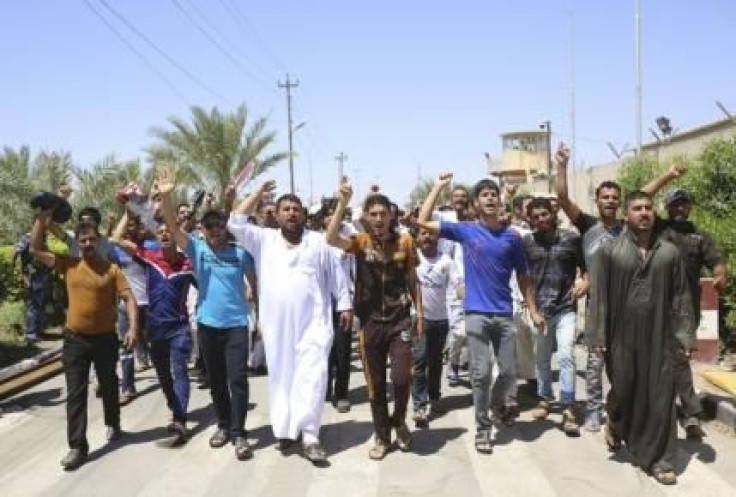Kerry Says U.S. Help Will Work Only If Iraqi Leaders Unite

WASHINGTON (Reuters) - U.S. Secretary of State John Kerry said U.S. assistance to Iraq, which is seeking to repel a stunning militant advance, would only work if Iraqi leaders overcame deep divisions, the State Department said on Saturday.
Kerry spoke with Iraqi Foreign Minister Hoshyar Zebari in a call on Saturday, the State Department said in a statement.
"He emphasized to the Foreign Minister that assistance from the United States would only be successful if Iraqi leaders were willing to put aside differences and implement a coordinated and effective approach to forge the national unity necessary to move the country forward and confront the threat of ISIL," the statement said, referring to the Islamist militants who have taken over several important Iraqi cities.
Kerry also urged Iraq to quickly ratify the results of its April 30 parliamentary elections and to form a new government without the long period of wrangling that followed 2010 elections.
The advance by Sunni militants from Islamic State in Iraq and the Levant, or ISIL, toward the Iraqi capital, Baghdad, appeared to be slowing on Saturday, but a grave threat remains to the government of Shi'ite Prime Minister Nouri al-Maliki.
U.S. President Barack Obama said Friday he was reviewing military options, short of sending troops, to help Maliki fight an insurgency that has been strengthened by the war in neighboring Syria.
The United States ordered an aircraft carrier moved into the Gulf on Saturday, raising expectations of new U.S. assistance in addition to the weapons sales and limited training the United States has provided Iraq since it withdrew troops in 2011.
But U.S. officials are reluctant to provide major new assistance without assurances that politicians from Iraq's Sunni, Shi'ite and Kurd communities can overcome long-standing divisions.
© Copyright IBTimes 2024. All rights reserved.











